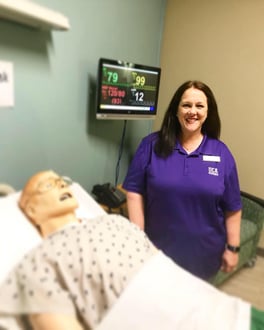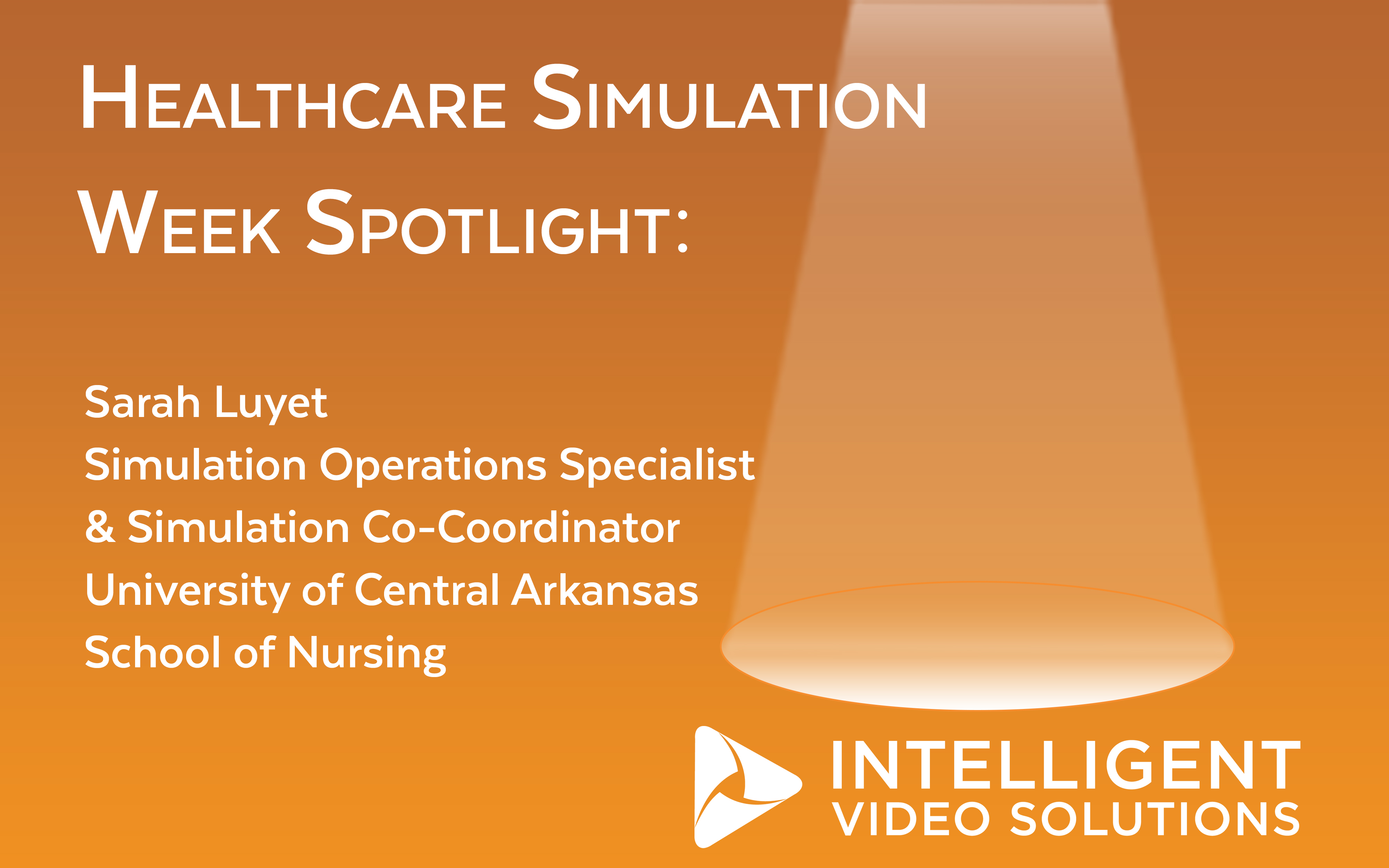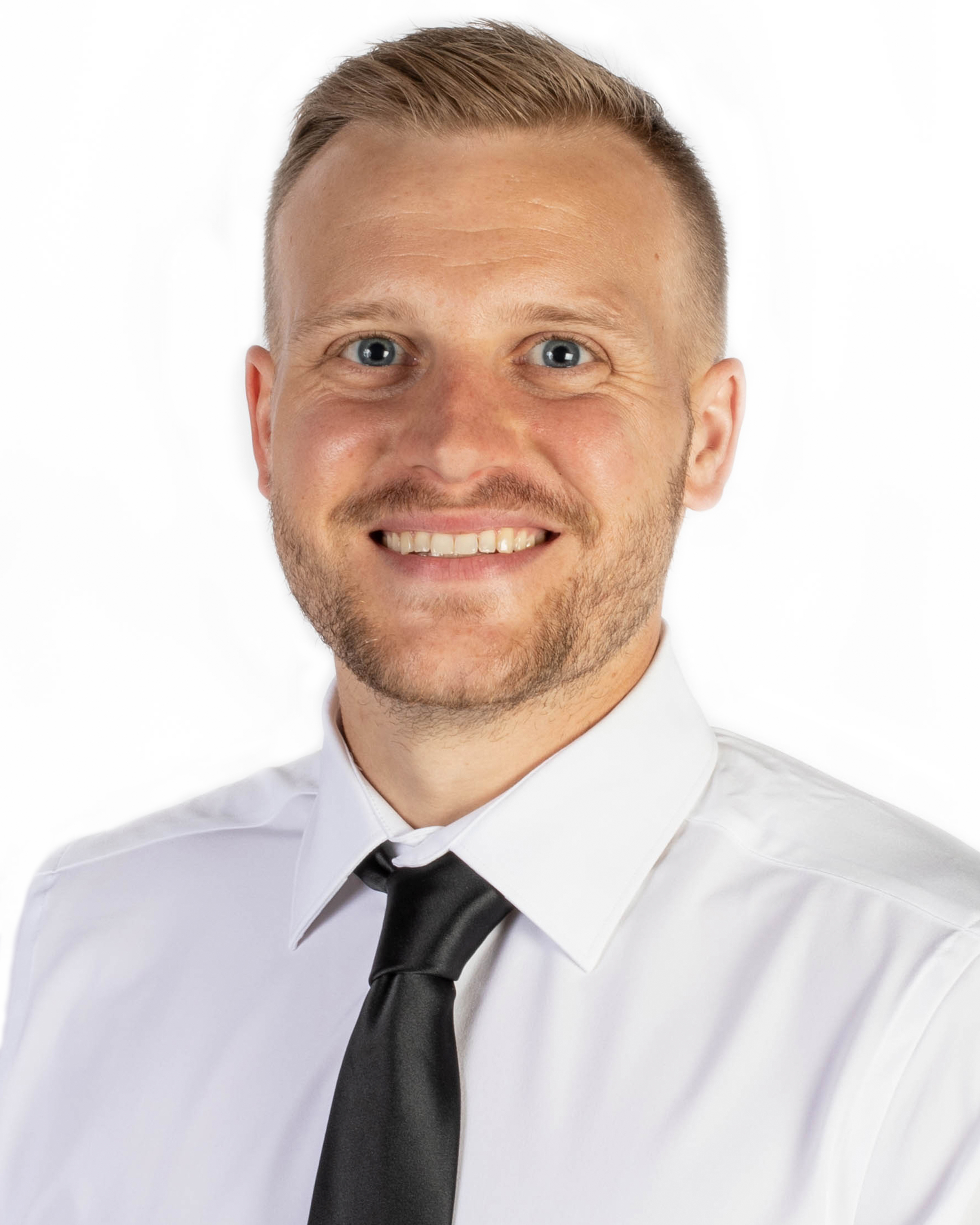Wednesday's spotlight we sat down with Sarah Luyet, Simulation Operations Specialist & Simulation Co-Coordinator at the University of Central Arkansas School of Nursing.
In honor of Healthcare Simulation Week, we are spotlighting the professionals who dedicate their lives to improving healthcare outcomes through training, skill development, and research. We sat down and asked questions about how they approach their career in simulation healthcare.
Sarh Luyet BS, CHSO
Simulation Operations Specialist & Simulation Co-Coordinator
University of Arkansas School of Nursing

1. What inspired you to pursue a career in healthcare simulation?
"I originally did not set out to pursue a career in healthcare simulation. I have a degree in Organizational Management and, after graduation, I got a job as an administrative assistant in the Employee Education department at the local hospital. I worked my way up to a program coordinator role and, in that role, I found healthcare simulation. I now work at the University of Central Arkansas as a Simulation Operations Specialist and Simulation Co-Coordinator, running simulation for students in our Nursing, Occupational Therapy, Physical Therapy, Communication Science, Nutrition, and Exercise Science programs."
2. How do you stay updated with the latest advancements and best practices in simulation technology and techniques?
"I am a member of SSH and SimGHOSTS so I use the information I receive from those organizations to stay up to date. I also read a lot and attend continuing education conferences."
3. What aspects of your role as a healthcare simulation leader bring you the most satisfaction?
"Enhancing the education of our students through the use of simulation, knowing that those students will serve members of the local community (and beyond) is the most amazing, satisfying part of my job!."
4. What have been your "aha" moments that have reshaped the way you approach simulations?
"I used to always stress about the things that I couldn’t replicate exactly like the clinical setting, whether that be due to lack of equipment or due to using a manikin as opposed to a human. I realized that there will always be some limitations and that’s ok – just do the best you can and what you can’t replicate exactly, cover in prebriefing before the students start the scenario."
5. What advice would you give to individuals who are interested in pursuing a career in healthcare simulation?
"Don’t be afraid to take the leap! It’s the best job ever!!!"
About VALT at the University of Central Arkansas School of Nursing:
The University of Central Arkansas (UCA) Integrated Health Sciences building is a collaborative space for students to learn and grow. The building is home to the School of Nursing, Simulation Center, and other Health Sciences disciplines. The scalability of VALT provided UCA the ability to support all the disciplines with one video solution. UCA uses VALT to run simulation for students in Nursing, Occupational Therapy, Physical Therapy, Communication Science, Nutrition, and Exercise Science programs.
Are you considering an expansion, renovation, or new simulation space?
Our new comprehensive resource (+eBook!) walks through healthcare simulation lab planning details, including the key topics and tools to use in your early planning stages.







